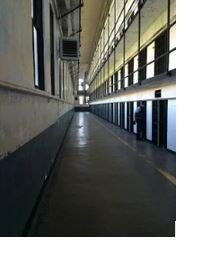Proposal aims to reduce prison population & associated costs during COVID-19
 Sacramento – With California’s prisons at about 111% of capacity, state lawmakers are taking more steps to reduce overcrowding during a pandemic without sacrificing public safety. After Legislative approval today, AB 3234 by Assemblymember Phil Ting (D-San Francisco) is headed to the Governor, giving judges the discretion to put first-time misdemeanor offenders through a diversion program and allowing more elderly prisoners to be eligible for parole.
Sacramento – With California’s prisons at about 111% of capacity, state lawmakers are taking more steps to reduce overcrowding during a pandemic without sacrificing public safety. After Legislative approval today, AB 3234 by Assemblymember Phil Ting (D-San Francisco) is headed to the Governor, giving judges the discretion to put first-time misdemeanor offenders through a diversion program and allowing more elderly prisoners to be eligible for parole.
“California’s criminal justice system should offer more flexibility and compassion. Time after time, we’ve seen that a second chance is all someone needs to turn their life around. When we do, we often get better rehabilitative and reintegration results,” said Ting.
AB 3234 builds off a successful diversion pilot program in Los Angeles County where the number of jury trials decreased by more than 2,000 over a two-year period, saving the courts $12,000 per day, per trial. Additionally, when first-time offenders charged with low-level crimes successfully completed a diversion program, recidivism rates were lower when compared to those who were prosecuted. Diversion program graduates who never reoffend also avoid having a criminal record that can prevent them from getting jobs and housing.
Ting’s legislation further eases prison overcrowding by making changes to the Elderly Parole Program. The geriatric population can cost California up to $300,000 per year, per person in medical costs. Currently, inmates are eligible for a parole hearing if they are at least 60 years old and have served a minimum of 25 years. AB 3234 safely lowers the age to 50 and minimum sentence to 20 years. Estimates suggest this can be done without great risk to public safety because fewer than 240 individuals would be eligible for this expanded review – although their release, if granted, would result in millions of dollars in cost-savings
Provisions of AB 3234 were originally introduced as part of budget deliberations and championed by Senator Nancy Skinner (D-Berkeley), Chair of the Senate Subcommittee No. 5 on Corrections, Public Safety, and the Judiciary. “Diversion programs rather than jail for those charged with misdemeanors are highly effective. AB 3234 gives judges the authority to expand diversion and recognizes that those who have been incarcerated for 20 years or more have a low risk of recidivism, and thus should be eligible to be considered for parole,” said Skinner.
As with all bills sent to the Governor this month by the August 31 deadline, he has until September 30 to act.
# # # # #